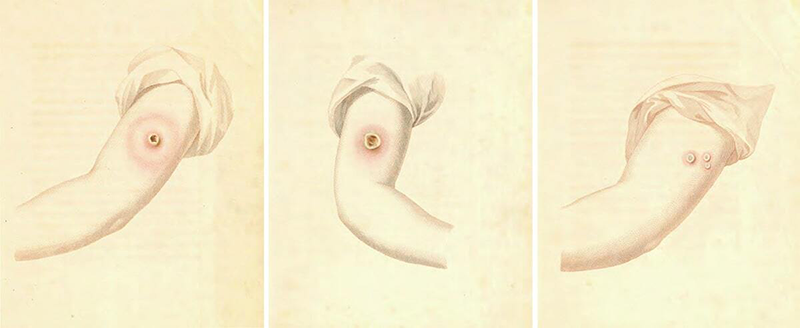
This post originally appeared as an article by Julie Mattera in the May 29, 2020 edition of Carnege Mellon Univeristy News.
With the ongoing speculation around the development of a viable COVID-19 vaccine, there's no better time to revisit the history of vaccination.
One foundational text of modern immunology and vaccination, housed in the University Libraries' Special Collections, offers a window into both the history of inoculation and anti-vaccination sentiment. Published in 1798, this first-edition copy of Edward Jenner's "An Inquiry into the Causes and Effects of the Variolae Vaccinae, a Disease Discovered in Some of the Western Counties of England,' describes how smallpox, one of the deadliest diseases in history, was cured by unexpected means.
More importantly, it made that discovery known to the world, said Carnegie Mellon University's new Curator of Special Collections Samuel Lemley.
"Vaccinations are a more recent development than many realize, and its early success was far from guaranteed," Lemley said. "By examining this text, we can revisit history and remind ourselves that progress usually comes sooner rather than later and that effective treatments often come from the least expected places."
In the following Q&A, Lemley discusses the importance of Jenner's book, it's significance in medical history, and how it connects to our current experience with the coronavirus pandemic.
View the complete article on the Carnegie Mellon University News website.
